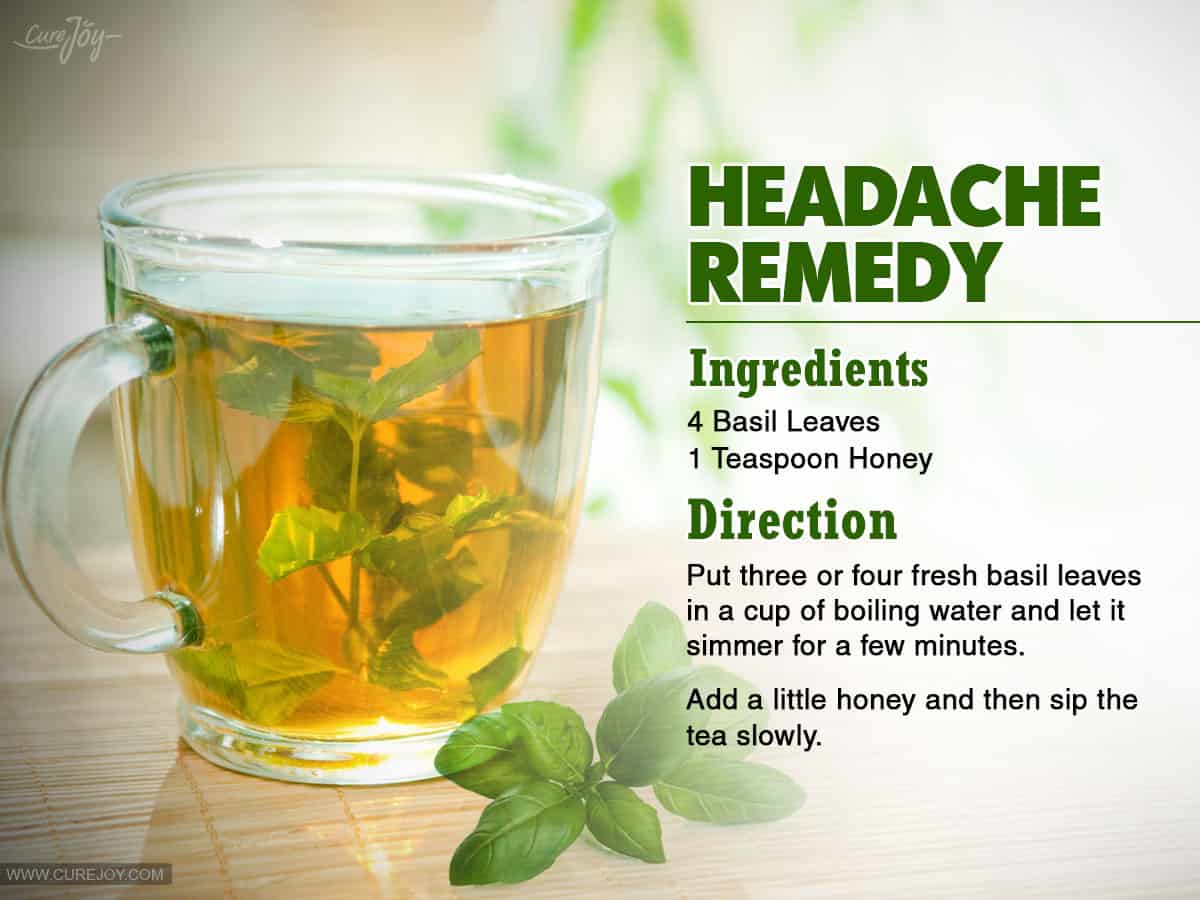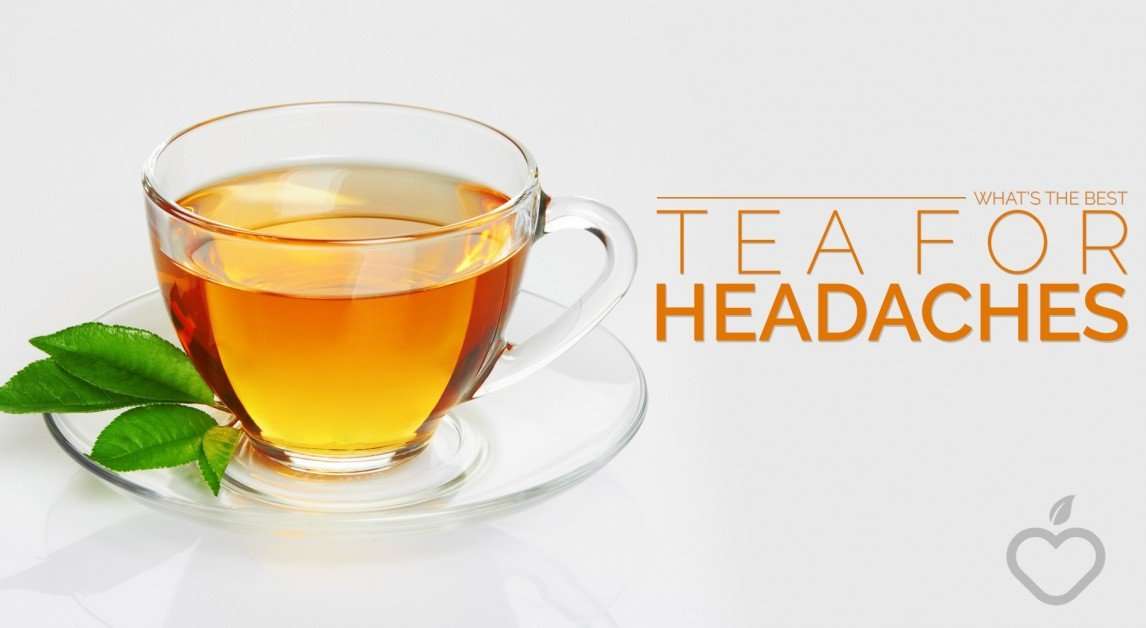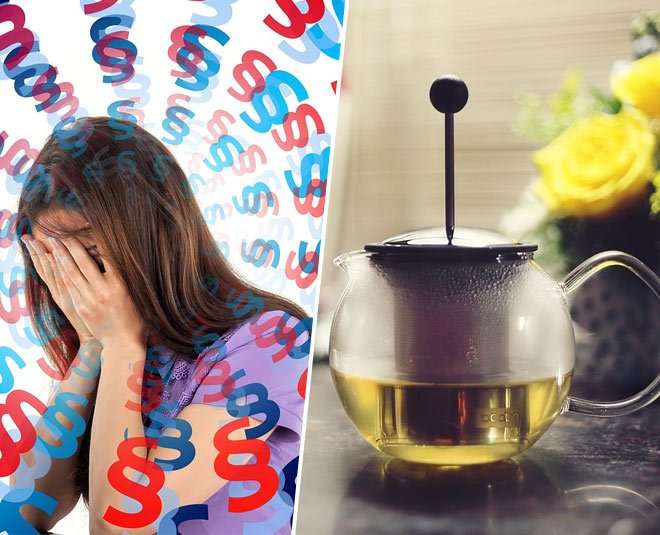Caffeinated Tea Might Induce Headaches
In the fight against headaches, not all teas are born equal. If you are trying to combat a headache with a cup of tea you may want to skip out on caffeinated teas. Caffeinated teas tend to be those true teas that are made from the leaves of the camellia sinensis plant. This includes black tea, green tea, and oolong tea too. Caffeine can narrow the blood vessels around the brain. Later these blood vessels can expand again which can cause pressure and pain. Caffeine also often works as a diuretic it can contribute to dehydration. There are tons of benefits that come with teas and tea blends from the camellia sinensis but for dealing with headaches and skipping caffeine, herbal tea could be best.
If you are dealing with a sensitive head or if you are fighting migraine attacks, then you want to turn to herbal tea instead. Herbal tea is caffeine-free, hydrating, and often full of healing goodness. You may also want to pick out low histamine soothing teas too in case your headache stems from sensitivity to pollen or other seasonal allergies.
Seeds And Nuts Provide Magnesium And Fiber
Magnesium deficiency is one of the most common nutritional causes of persistent or cluster headaches, says Sarah Thomsen Ferreira, RD, MPH, a registered dietitian with Cleveland Clinics Center for Functional Medicine in Ohio.
Prioritizing ample amounts of magnesium-rich foods daily is one of the best ways to keep these headaches at bay, Ferreira says.
Flaxseeds, sprouted pumpkin seeds, and chia seeds are all good , says Ferreira. Pumpkin seeds are also high in fiber, preventing the constipation that sometimes comes with migraine. Cashews are high in magnesium, too, she says.
Does Caffeine Help Migraines
Caffeine is an ingredient in many over-the-counter headache medications because it helps reduce inflammation. Caffeine is also a vasoconstrictor, which means that it narrows blood vessels to restrict blood flow.
When blood vessels in the head become enlarged during headaches, caffeine can decrease pain by constricting them and reducing blood flow. Many medications for headaches work by causing constriction of vessels in the head.
If you suffer from migraine pain, consider keeping a journal tracking what you ate, drank, and did around the onset of your migraines to note any triggers. You may find a certain amount of caffeine can help relieve migraine pain.
You May Like: Buy Peace Tea In Bulk
Seven Best Teas For Headaches And Stress
A headache is not just discomfort, it is disabling. It ruins your entire day. Did you know over 50% of the adult population in the world suffer from headaches? It can be a tension headache, cluster headache, migraine, caffeine headache, exertion headache, sinus headache, hormone headache, hypertension headache, rebound headache, or a post-traumatic headache. While tension headaches cause mild and moderate pain, migraine causes severe pain.
What do you do when you have a headache? Go for a painkiller? From experience, you might know that a headache doesnt leave you easy. It comes back eventually as the medicine leaves the system. Therefore, taking a painkiller every time you have a headache is not the solution. If you are looking for a permanent solution and don’t want to go for over the counter medication, perhaps tea can be the potion you are looking for!
Herbal Teas For Headache And Migraine

- Green tea: If you do not have any other herbal tea, then drinking green tea is the easiest way to get relief from migraine. Green tea contains a lot of antioxidants, so it is very beneficial for health. Green tea also relaxes muscles and nerves, hence it is considered the best drink to relieve stress. Apart from this, green tea boosts metabolism and also controls your calories. Therefore, migraine patients can drink 2-3 cups of green tea in a day . This will not only relieve pain but will also be useful for their health.
- Ginger tea: Ginger is a wonderful herb, which is widely used in Ayurvedic medicines. Ginger has anti-inflammatory and pain-relieving properties. Hence it is considered beneficial in migraine pain. Ginger tea also eliminates acid reflux and upset stomach. But note that in a migraine you have to drink simple ginger tea . You can add one teaspoon of honey for sweetness.
Also Read: Also Read:
You May Like: Is Iced Tea Safe During Pregnancy
Should You Drink Caffeinated Tea For Headaches
Itâs tricky to know whether drinking caffeinated tea will help or hurt your headache – the answer depends solely on how caffeine affects you. For some people, caffeine enhances the effectiveness of pain relievers like acetaminophen and helps relieve headache or migraine pain more quickly, but thereâs also evidence that caffeine might only make headaches worse for those with more caffeine sensitivities.
Because caffeine affects each person differently, we recommend sticking to drinking one of the herbal teas or caffeine-free teas listed above to be safe rather than sorry. However, if you know that a healthy level of caffeine generally has a positive effect on you, drinking one cup of caffeinated tea – such as a green tea blended with some of the headache-fighting herbs listed above – may help alleviate your headache pain!
Looking for the best caffeine-free and caffeinated tea to help soothe headache pain? We’ve curated this headache relief collection of the best teas to support headache relief, with ingredients that may help reduce pain and inflammation. Brew up a cup of relief!
* These statements have not been evaluated by the Food and Drug Administration. These products are not intended to diagnose, treat, cure, or prevent any disease.
Setting A Healthy Nighttime Routine
A healthy nighttime routine may help reduce risk factors such as stress. Some tips for improving sleep hygiene include:
- avoiding blue light before bed, such as lights from computers, cell phones, or televisions
- doing relaxing activities such as gentle stretches, self-massage, or breathing exercises
- taking a warm bath or shower
- sleeping 7-9 hours each night
Don’t Miss: Tokyo Iced Tea Recipe
What Tea Is Good For Tension Headaches
A tension headache is a secondary headache as it is often caused and exacerbated by stress, muscle fatigue, eye strain, or other psychological issues. Because of that, teas including chamomile are often used to reduce stress and aid in sleep. It is also often used to help migraine sufferers . Peppermint oil has also been found to be highly effective in easing tension type headaches.
Plum Deluxes Cuddletime Herbal Tea is perfect for tension headache relief as it contains both chamomile and peppermint. Try this tea on its own or in conjunction with de-stressing techniques such as deep breathing and relaxation.
Ginger Lemon Herbal Tea
- 1-inch piece of ginger, peeled and sliced into rounds
- 1-2 slices of lemon
- 2 teaspoons of Lemon or Lemon Raspberry Natural Calm
- 2 cups of water
Directions:
Combine the water, ginger, and lemon slices in a small saucepan and bring to a boil over high heat. Once it has come to a boil, reduce to low heat and let it simmer for 10 minutes. Remove from the heat and allow it to cool slightly. Put the Natural Calm in a large mug and pour in the tea. Strain the pieces of ginger and lemon.
Don’t Miss: Hibiscus Tea Menopause
How Can Tea Soothe A Headache
Headache can be defined as a pain in the head and neck, caused by different health problems or environmental factors such as loud noise, infections, stress, even dehydration. There are different types of headaches and there is not a single person who hasnt experienced at least one or few during their life. Some of them may be less serious and easily treatable, while others may be a symptom of a serious health condition. They are two groups of headaches primary and secondary. Primary headaches are tension headaches, cluster headaches and migraines, while secondary headaches appear as a symptom of some other disease or condition, such as dehydration or common cold.
Before deciding to treat your headache with tea, its important to know what kind of headache you are having. For example, headache caused by dehydration may be treated with re-hydrating yourself with fluids, including tea. For headaches caused by common cold or those caused by stress you may also find relief in a cup of tea. But serious headaches caused by serious underlying problems should not be treated at home.
Disclaimer: This article is for informational purposes only. Its not intended to replace medical advice, diagnosis or treatment. Every person is different and may react to different herbs and teas differently. Never use teas or herbs to treat serious medical conditions on your own. Always seek professional medical advice before choosing home remedies.
When Is It Important To Get Professional Headache Treatment
These excellent teas can provide considerable relief from migraines, tension headaches, and other types of headaches. In fact, National Headache Institute Houston experts often recommend tea for headaches to their patients because of the delightful properties.
However, recurring headaches can also be a symptom of more serious health problems. If youve been experiencing migraines or other chronic headaches for two months or longer, its time to contact a headache specialist.
Not only can we help you find relief for the pain, but we can also determine the underlying causes of your specific headaches. Our personalized treatment options can help you reduce or get rid of persistent migraines.
To learn more, schedule an appointment right away at a location near you.
Recommended Reading: Lipton Green Tea Good For Weight Loss
Ginger Tea And Migraines
Ginger is an anti-inflammatory herb with pain-relieving effects. Moving beyond that, the anti-inflammatory benefits go so far as to reduce inflammation in the neurons of the brain too .Serotonin levels involved in migraine, though the exact mechanistic roles are not fully understood . Ginger increases serotonin by inhibiting receptors . The increase of serotonin and anti-inflammatory action from ginger helps alleviate migraine in the same way as triptans, a class of migraine medications .In a randomized, double-blind trial, patients were given either ginger capsules or the migraine medication sumatriptan . Both interventions decreased severity of pain, and maintained patient-satisfaction. Researchers determined that the effectiveness of ginger was statistically comparable to sumatriptan and was associated with fewer side effects.
For an easy dried ginger tea, try our
Green Tea And Migraines

There is a lack of formal, clinical research on the use of Green Tea in the treatment of migraines and headaches, though it does have a history of folk use for these conditions. Green tea has been reported as a treatment for migraine in traditional medicine systems from China and India according to the European Medicines Agency .
Recommended Reading: Is Lipton Tea Good For Pregnancy
Seven: Willow Bark Tea
Did you know willow bark is called natures Aspirin for headaches? It is an effective pain remedy for chronic headaches and migraine headaches. The compounds in Willow Bark help in lowering the blood pressure in the small capillaries and blood vessels in the head which in turn results in easing pressure and relieving those painful, debilitating symptoms.
A study showed that this bark which has been used since ancient times to heal pain can also relieve lower back pain and may aid in osteoarthritis pain as well . Since Willow Bark is as powerful as Aspirin, experts recommend not to mix it with the over the counter medications. It is also recommended not to drink this tea if you are taking medications for blood sugar disorders and blood thinners.
Stress Relief Tea Collection
Explore the Sips by stress relief tea collection to find teas to help reduce stress and anxiety, from soothing chamomile blends to bath teas for relaxing soaks to teas that help you sleep. Discover the best herbal tea for stress relief, like herbal relaxation teas, the best tea for relaxation, and more tea to calm you down.
Read Also: Getting Tea Stain Out Of Carpet
Yogi Tea Honey Lavender Stress Relief
The most common cause of headaches is stress. When your body releases cortisol into your system, it constricts blood vessels and increases blood pressure to create a tense feeling in your head and body. The Yogi Honey Lavender Stress Relief Tea aims to relieve headaches by targeting stress and calming your system for holistic relaxation and comfort.
This all natural herbal tea uses lavender as its main herbal ingredient, combined with lemon balm and passionflower extract to achieve superior and fast-acting relief against headaches. Notes of chamomile also enrich the aroma, engaging all the senses for a relaxing tea-drinking experience that benefits the entire body.
Yogi Honey Lavender Stress Relief Tea comes in individual tea bags that you can easily steep with a 2-step process. The tea has a distinct spicy warmth that blends perfectly with notes of sweetness from honey and peppermint extracts this makes it both an enjoyable beverage and effective treatment for headaches, in one affordable purchase.
Should You Visit Professionals
Headaches are never any fun and while we have done our due diligence when it comes to researching which teas could work as a complementary therapy for you, it’s not a replacement for help from your healthcare provider. Headaches can be fleeting or they can be reoccurring and long term. If you have been dealing with consistent headaches for a couple of months you should be sure to check in with your medical professional. Home remedies can help headache symptoms but if your pain is severe or connected with other issues then a doctor should be consulted to rule out any underlying conditions.
Also Check: Does Twisted Tea Taste Like Tea
What Tea Is Good For Sinus Headaches
A sinus headache is a secondary headache and is characterized by a dull or throbbing pain throughout the sinuses. These are most often the result of a sinus infection, the predominant symptom of which is thick yellow or green nasal discharge. Because of that, any steam on your face will help to loosen the buildup in your sinuses. A ginger tea such as Rejuvenation Blend Herbal Tea will help reduce inflammation, whereas any tea with mint or menthol will help open up those sinuses. Try Refreshing After Dinner Mint herbal tea to really loosen things up and add some relief.
Watermelon Provides Fluids To Keep You Hydrated
Interesting fact: Watermelon is actually considered a vegetable because of the way its grown, although some people would argue it belongs firmly in the fruit category because of its sweet flavor and higher sugar content.
Watermelon also has a lot of water in it. Its actually 92 percent water, according to the National Watermelon Promotion Board. Getting plenty of water both by drinking it and by consuming foods that contain lots of water will help you stay hydrated.
Getting enough fluids is important for all aspects of health, including migraine, says Brown. About one in three people with migraine say dehydration is a trigger, according to the American Migraine Foundation.
Many fruits and vegetables can have a hydrating effect, and the fresher it is, the higher the water content, says Brown.
Read Also: Bubble Tea At Dunkin Donuts
What Is The Truth About Caffeinated Teas For Headaches
For some people, green tea and other caffeinated teas provide amazing relief for migraines. Green tea contains powerful phytochemicals called catechins with significant health benefits. It also has a balanced amount of caffeine .
However, in other people, caffeine actually provokes headaches. Its a common trigger for migraines and it can also cause withdrawal headaches. If youre not sure in your case, keep track of what you eat or drink right before migraines appear. If caffeine seems to be the culprit, steer clear of green tea. Knowing what tea is good for headaches for you personally can help you experience the most relief.
Tips For Treating Headaches

Here are my best tips to relieve your headache:
1. Environment
It is possible that the headache is caused by a noisy and stressful environment?
If possible, go to a room that is cool and dark with good air ventilation. This is especially effective for migraine headaches that are often triggered by bright light and noise.
Another great option is to take a walk in a forest. Being in nature is one of my favorite remedies for many conditions, and its surprisingly relaxing and effective!
2. Relaxing
Once you are in a comfortable environment, its probably a good idea to lay down, close your eyes, and try to relax all your muscles. Focus on controlling your breathing and inhale slowly in and out. If you feel tired, why not take a nap.
3. Treating Tense Muscles
As mentioned earlier, tense muscles in the neck, shoulders, and scalp are a common cause of headaches. Here are three effective ways to address this issue.
4. Drink Herbal Teas
As you are about to find out, herbal teas are an effective natural remedy for headaches. Read further to learn more, and to find out which tea is best for each type of headache. Sometimes you might also be dehydrated, and herbal teas will help with that as well.
Recommended Reading: Popping Boba Starbucks
Green Tea Alternative For Headaches And Migraines
If you are not an avid green tea drinker, you may be curious to know other tea you can use to soothe symptoms of headache and migraines.
Well, consume a tea that is rich in antioxidants or tea that has anti-inflammation, antinociceptive properties.
For instance, peppermint tea has a significant pain-relieving effect. And tea like clove tea is a good antinociceptive. Other teas you can take include:
- Tumeric tea
- Lemon tea